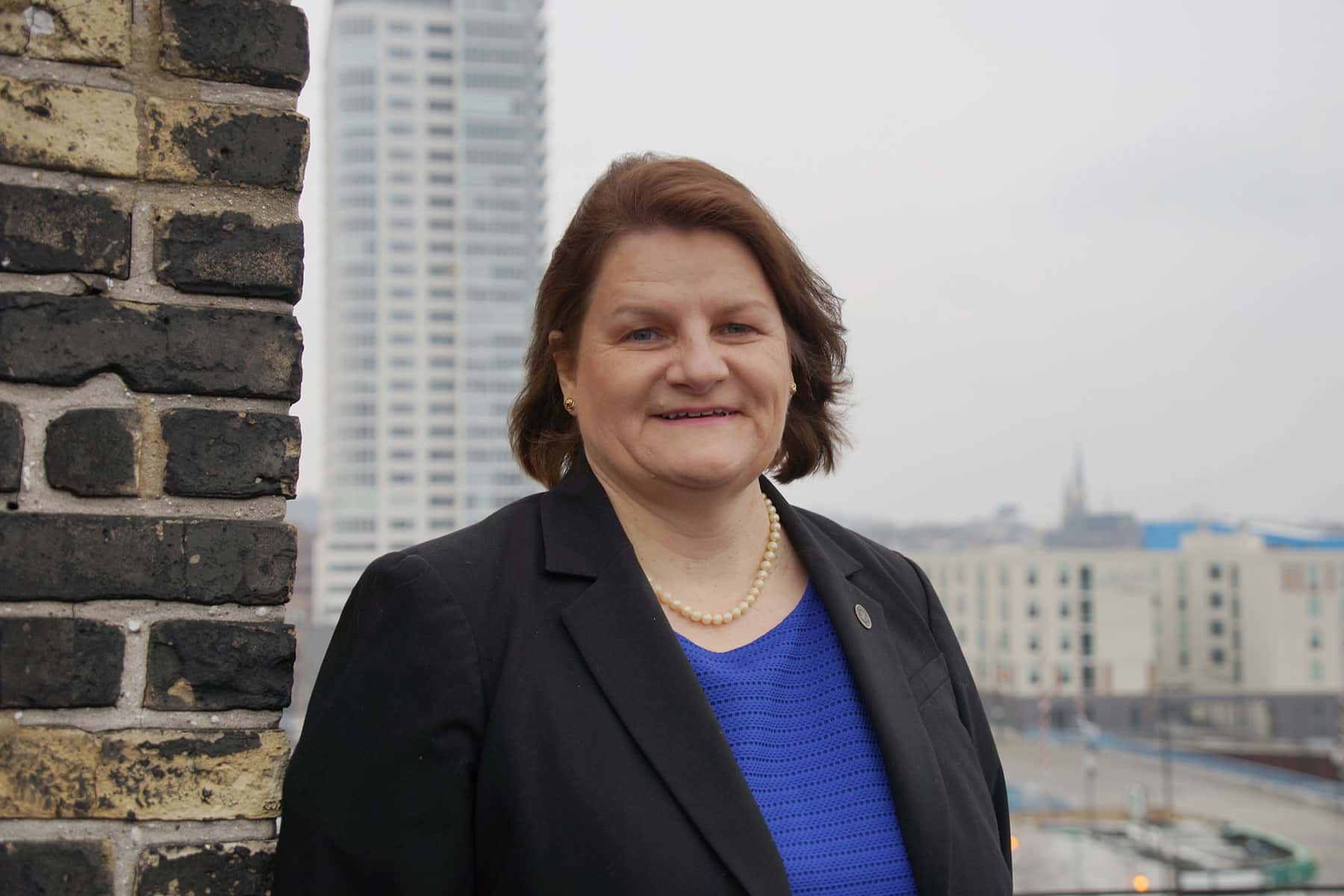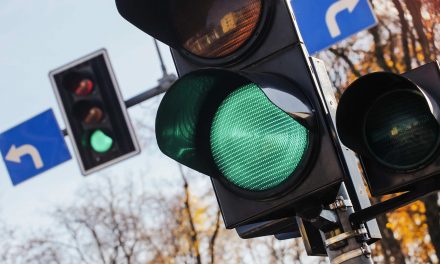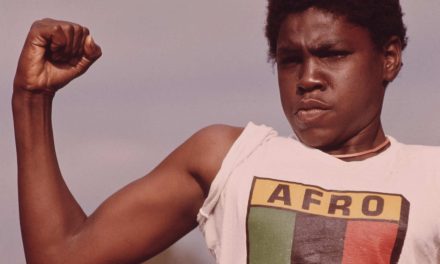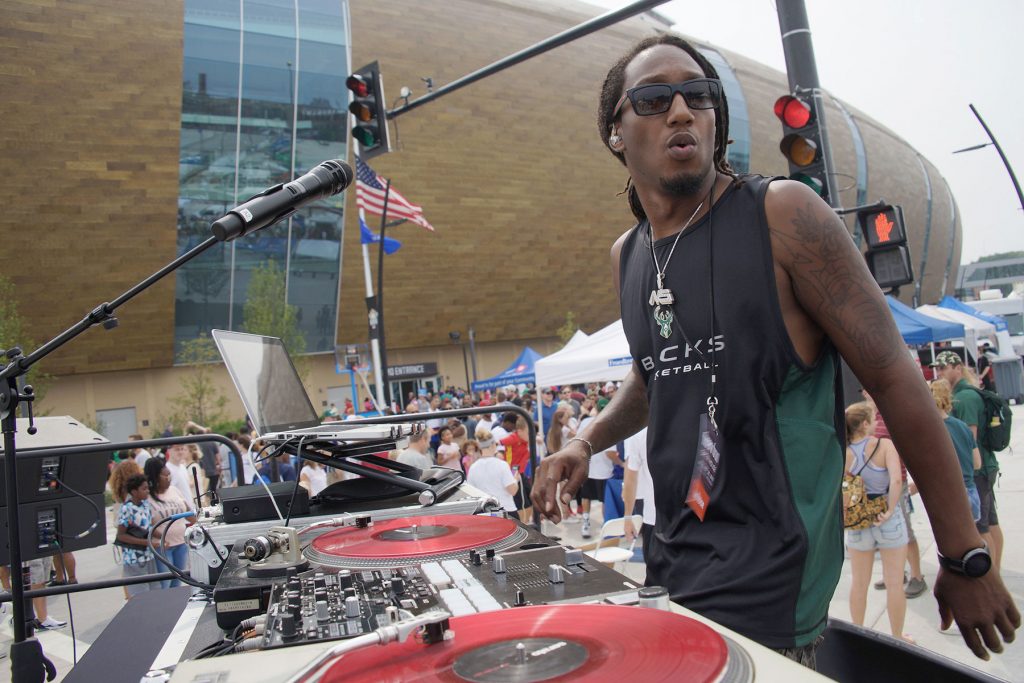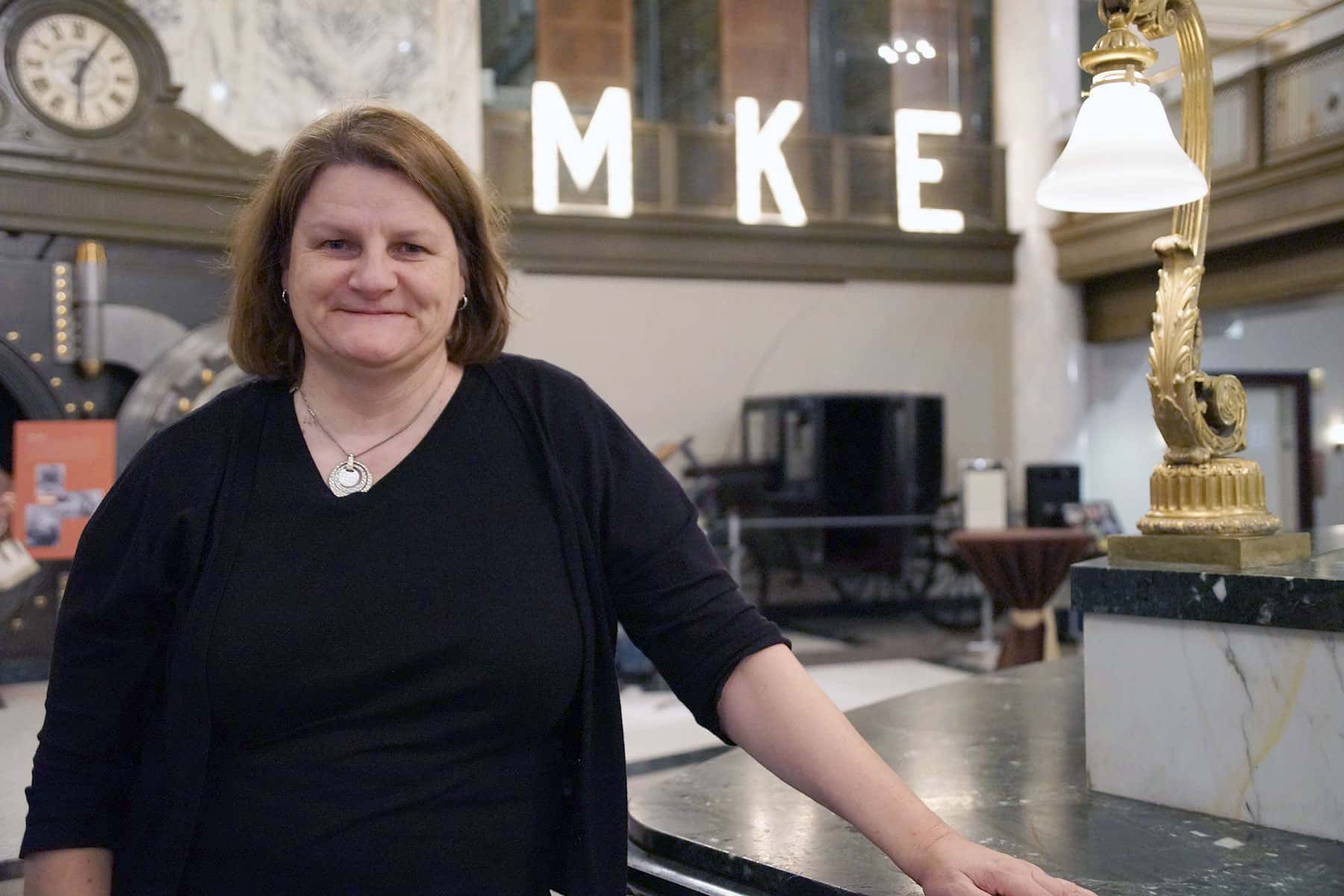
EDITOR’S NOTE: Hannah Dugan was part of the first batch of individuals that Milwaukee Independent interviewed after starting to publish as a daily news service in 2016. Dugan sat down for her interview before deciding to announce that she would run for the elected position of a Milwaukee County judge. What was published also included a video segment, which was standard at the time as a companion to the written Q&A. The dual format evolved to include a more in-depth video package over time, and then that part of the process was mostly retired after several years. Since international attention became focused on Judge Dugan in April 2025, this interview set remains the only one of its kind with her and a source of unfiltered information about her, in her own words. It remains a credit to her strong legal ethics, and offers important insight into Dugan’s passion for the rule of law.
Spending her legal career to help and provide equal justice, Hannah Dugan continues to use the law to remove class barriers and advance social change for those who are most vulnerable in our community.
With decades of experience in legal practice, nonprofit leadership, and systemic reform, Dugan has helped shape how Milwaukee approaches justice beyond the courtroom. Her efforts include expanding legal access for underserved communities, strengthening ethical standards, and improving institutional accountability. Whether guiding initiatives or representing individuals in need, she brings a disciplined commitment to fairness, public service, and meaningful change within the legal system.
Q&A with Hannah Dugan
Milwaukee Independent: What do you enjoy most about the law?
Hannah Dugan: Justice is hard work. I love the challenge of such hard work. The rule of law and precedential law is meant to provide consistency and predictably to create order and safety. And yet the law also offers the capacity to transform people’s lives and evolve with changing times and circumstances. I love the challenge of law to meet the promise of equal justice and its capacity to bring hope to people.
Milwaukee Independent: Do you believe the Milwaukee Judiciary system in general remains independent and is free from undue political pressure?
Hannah Dugan: The judges in Milwaukee County – the 47 branches of the circuit court and the 19 municipal courts – in my experience act as independent public officials, deciding cases according to the legal process. Sometimes those cases get politicized because of the subject matter. Sometimes because of the law itself. In recent years, Wisconsin has passed some notable pieces of controversial legislation, and litigants have challenged these laws in the courts. It is the role of the judge to be particularly cautious that such cases are handled according to the legal process and not be overwhelmed by political pressure. All that being said, it is fair to say that the effects of Act 10 on all courthouse personnel are palpable. Despite the effects, I know first hand that the work in the courthouse continues at the highest quality. The judges remain independent and impartial, besides the increasingly complex calendars and the limited resources allocated to the courts.
Milwaukee Independent: What is your view of the current judiciary situation in Milwaukee?
Hannah Dugan: The current judiciary works under the tension of raised expectations to resolve some tremendous, seemingly intractable systemic concerns and some tremendously complicated cases. And all undertaken despite limited resources and time. For decades, the Milwaukee County judiciary and the justice system stakeholders have worked cooperatively to address particular issues with creative responses. The problem-solving courts such as the VA Court and the Domestic Violence courts are good examples. The award winning evidence-based decision-making project is a current great example. For a decade I served on the Benedict Center board, working on ideas, programs, and court alternatives to overwhelming problems. So I know first hand the commitment that the chief judges and courthouse officials have exercised to increasing access, reducing recidivism, and holding people accountable – appropriately. As Milwaukee Bar Association president and as a member of the Access to Justice Commission, and on the Wisconsin Supreme Court’s Policy Committee, I have worked with public officials to wrestle with creating solutions to large systemic questions that judges face everyday.
The judiciary in Milwaukee really needs to be commended for moving out of its comfort zone and working cooperatively with other justice system actors in addressing new approaches to complicated issues such as the decriminalization of behaviors by persons with mental health diagnoses. That said, judges, prosecutors, public defenders, civil lawyers, and litigants all need to stay in their designated lanes. But the willingness of all these stakeholders and others to attempt new cooperative criminal justice and civil justice responses is and has been a hallmark of the Milwaukee judiciary.
Milwaukee Independent: You recently won an award for your work with nonprofit organizations, what has this kind of recognition meant to you?
Hannah Dugan: I was humbled and thrilled to be a finalist for Lifetime Achievement in Nonprofit Excellence award. I am passionate about mission-based work. Nonprofit work is a great avenue to work for justice. My work with nonprofits has been a 360 degree. An experience of leadership, membership, fund raising, program initiation, legal representation, sector capacity-building, and an all-in commitment to efficient and effective nonprofit mission-advancement. I see my nonprofit work as coalescing in one goal: to have legal and human services accessible and affordable to everyone. It is great that others recognize that I have hit that goal on occasions.
Milwaukee Independent: What has the experience of working with nonprofits to help the public taught you?
Hannah Dugan: Working with nonprofits has taught me the deep sense of public service and hope that exists in Milwaukee.
Milwaukee Independent: When you worked for the Legal Aid Society of Milwaukee, what was your most common type of case?
Hannah Dugan: I was hired to run the Municipal Ordinance Defense Project, which included a law school clinical component. But as a Legal Aid attorney I would listen for other legal concerns besides the reason a client would ask for representation. So while my client representation might have started with a ticket it could also included a housing, public benefits, family, or consumer issue and representation. I also undertook impact litigation, which is a huge role for Legal Aid attorneys. Over time I designed new projects to address the ever-evolving legal landscape that low income persons face. I eventually ran the Domestic Violence Project addressing the civil legal issues that are hurdles for persons attempting to leave unsafe situations. I also worked on the Elder Law project, addressing the constellation of legal issues and planning that elders and veterans face. And I brought a number of consumer law actions and two major consumer class action lawsuits.
Milwaukee Independent: Can you describe the work you did at Catholic Charities and what it meant to you?
Hannah Dugan: The agency faced challenging times. I helped stabilize finances and operations, and legal restructuring the agency by evaluating its programs for efficiency, mission-focus, and efficacy. I felt rewarded to redirect its path towards successes based not only on evidence-based decision making but also on measuring decisions against social justice principles. It meant a great deal to me that the access of services expanded tremendously and the percentage of low income persons served increased by more than 30 percent. All that despite working at the agency during the beginning of the recession.
Milwaukee Independent: Do you think women have enough opportunities in the Milwaukee legal community, and what can be done to expand their involvement?
Hannah Dugan: Women lawyers in Milwaukee and in the U.S. still are underrepresented in partnership and shareholder tracks. In Milwaukee and Wisconsin, we don’t have enough women serving as trial court judges. A majority of Wisconsin Supreme Court justices are women, as are a high percentage of the Court of Appeals judges. Diversity in the law is critical, for client choice and to be certain that a variety of perspectives are in play. More lawyers in rural areas is important, and women lawyers could become local leaders more readily in rural areas. For instance, most elected women are elected at the local school board or local government levels. For years the bar has kept records on the number of lawyers by gender. These numbers do reflect practice trends of women. For the first time last year the bar asked for self-reported demographic data about race, disability, and sexual orientation. Such data will contribute to isolating diversity issues within the bar and begin conversations about expanding involvement and opportunities for any isolated group underrepresented in the practice of law.
Milwaukee Independent: You have been deeply involved in legal ethics, do you see any trend in this behavior improving or deteriorating?
Hannah Dugan: The system of lawyer regulation in Wisconsin underwent an overhaul about 15 years ago, and the Rules of Professional Conduct were updated about 8 years ago. I served on that Commission and we included several improvements. An updating of the lawyer regulation system is planned to occur during the next several years. A huge improvement in the last several years is the distinction between unacceptable conduct requiring discipline and unacceptable conduct requiring a determination of medical incapacity. Consumer-client protection is a key motivation for the regulation system. The system slants towards disciplining solo and small firm lawyers and shifting that slant would improve the protection of clients.
Milwaukee Independent: Is it realistic to hope that Milwaukee can give-up its segregated past and build a better united community future?
Hannah Dugan: Building a better united community starts with hope, followed by the hard work that is required to obtain justice. This includes the justice that comes through desegregation.
Milwaukee Independent: What advice would you give a young woman interested in making a career of the law?
Hannah Dugan: Realize that a career in law offers all sorts of opportunities besides legal practice. I would advise going to a law school that offers a curriculum that will build on her strengths. And that she should seek and secure a mentor to help guide her career, to help serve as a sounding board.

